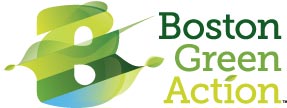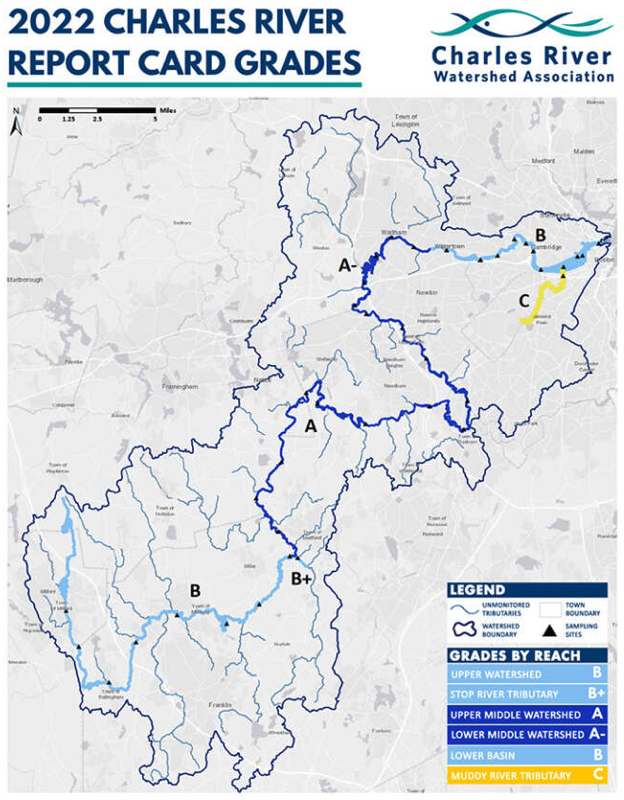On August 23rd, WBUR’s Barbara Moran reported the findings of the Environmental Protection Agency’s annual report card on the health of the Charles, Mystic and Neponset Rivers. Her article is excerpted here:
“Improvements to Boston’s three major rivers are slowing or stalled, and climate change is a major culprit.
The assessment, from the U.S. Environmental Protection Agency’s annual report card, covers the Charles, Mystic and Neponset Rivers. Every summer, the EPA issues letter grades to segments of the rivers and their tributaries, so the public can track improvements in water quality.
This year’s grades were similar to last year’s ratings. Most segments of the rivers got A’s and B’s, indicating water that passed swimming and boating standards most of the time. The report noted slight water quality improvements in the Neponset and slight declines in the Charles and Mystic.
Much like Paris’ Seine River, where polluted water caused a delay in the 2024 Olympics, Boston’s rivers also contend with pollution from heavy rain that sends untreated sewage into the water.
Stormwater runoff is another problem, sweeping oil, gasoline, dog poop, and trash off roads, roofs and parking lots directly into rivers and streams. Stormwater also carries nutrients like phosphorus, which can lead to toxic cyanobacteria blooms that are dangerous for people and pets.
‘Stormwater is the last big problem on these rivers,’ said Ken Moraff, water division director for the EPA’s New England office. He said the agency is preparing to require private property owners to manage stormwater runoff. ‘Unless we really, really clean up stormwater, we’re not going to have clean rivers, so we’ve made a commitment that that’s what we’re going to do.’
The problems are exacerbated by climate change, which is increasing the frequency and intensity of rainstorms.
’These rivers connect us. They connect community to community as the water flows through,’ said Hartman Deetz, a member of Mashpee Wampanoag tribe, at an event marking the release of the annual report card. He said people shouldn’t ‘destroy and take from this world without giving back, without doing the work to repair. So that’s what’s ahead of us.‘
Charles River
For the second year in a row, progress on cleaning up the Charles remained ‘stalled,’ according to Emily Norton, executive director of the Charles River Watershed Association.
Increased precipitation, sewer overflows and stormwater runoff continued to pollute the river. In 2023, nearly 50 inches of rain led to more than 72 million gallons of sewage being discharged into the Charles through ‘combined sewer overflows,’ or CSOs. This happens when stormwater and sewage systems are joined, and designed to overflow into rivers and bays during heavy rains.
As a result, no stretch of the Charles received an improved grade from last year, and two areas saw decreases: The lower middle watershed from Newton to Waltham dropped from an A to an A-, and the Lower Basin area near downtown Boston went from a B to a B-. The Muddy River, which flows through Brookline into the Charles, got the worst grade in the watershed, with a C.”
Read the full article.
Graphic: WBUR


